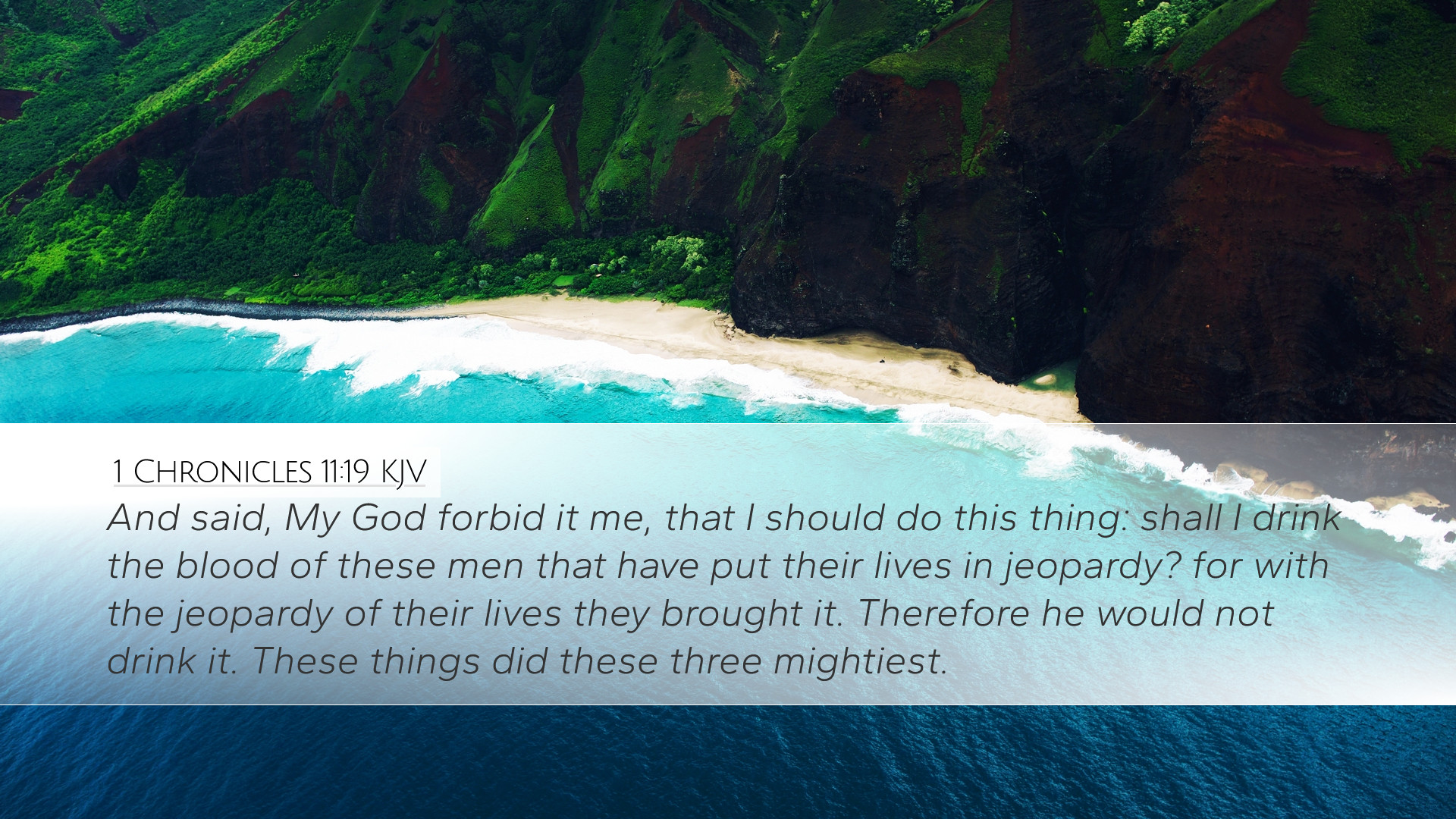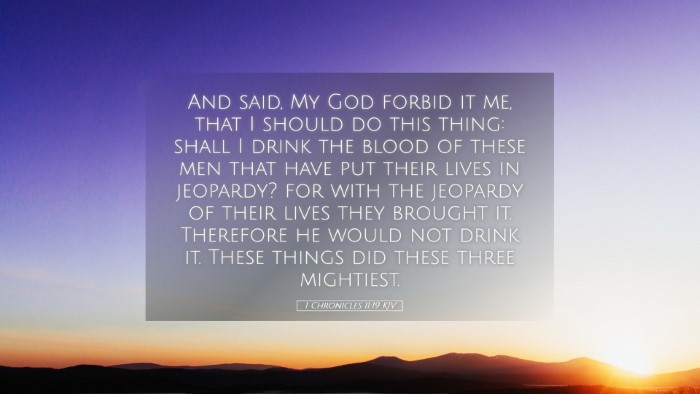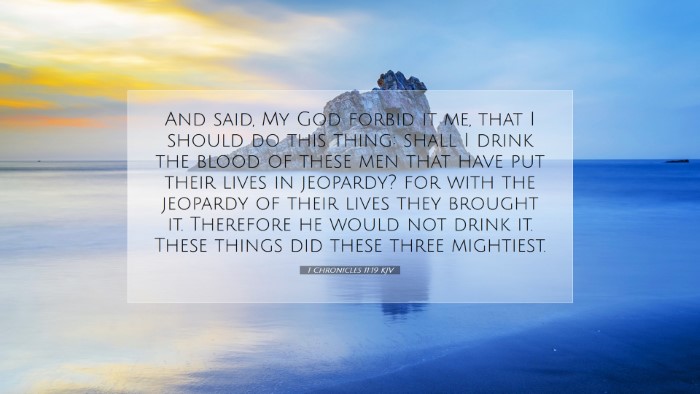Commentary on 1 Chronicles 11:19
Bible Verse: “And said, My God forbid it me, that I should do this thing: shall I drink the blood of these men that have put their lives in jeopardy? for with the jeopardy of their lives they brought it.” - 1 Chronicles 11:19
This verse reflects a critical moment in the life of King David, emphasizing the honor and respect owed to those who risk their lives for others. The context of the passage speaks volumes about the nature of leadership and the responsibilities leaders bear towards their followers.
Contextual Background
In 1 Chronicles 11, we find David established as king and surrounded by his mighty men. These warriors were fiercely loyal to him and showed great valor in battle. This particular verse arises from a narrative where David expresses a desire for water from the well of Bethlehem, which was situated behind enemy lines. His men, in a remarkable display of loyalty, break through the enemy's lines to fetch him this water.
Thematic Insights
-
The Value of Sacrifice:
David's refusal to drink the water symbolizes a profound respect for the sacrifices made by his men. Albert Barnes notes that drinking this water would be tantamount to disregarding the lives that were risked to procure it. This act of self-denial highlights a leader's responsibility to honor the sacrifices of those he leads.
-
The Nature of Leadership:
Matthew Henry elaborates on the essential qualities of good governance. Leaders should prioritize the welfare of their followers and recognize their sacrifices. David's response exemplifies humility and gratitude. He recognizes that his position is safeguarded through the valor of his men, reinforcing the notion that effective leadership is service-oriented.
-
Symbolism of Blood:
In his commentary, Adam Clarke draws attention to the symbolism associated with blood. Blood represents life and sacrifice, and David refrains from consuming the water, equating it with the blood of those who risked their lives. This act echoes a fundamental biblical principle that life is sacred and should be honored.
Lessons for Pastors and Theologians
1. Honoring Sacrifice:
Leaders must always remember the sacrifices of their congregation. Just as David honored his men’s lives, pastors should acknowledge and appreciate the contributions and sacrifices of their community for the sake of the gospel. Recognizing their efforts fosters a spirit of unity and respect.
2. Servant Leadership:
A leader's primary role is to serve. The example set by David acts as a model for leaders today. True leadership is not about wielding power but serving those who follow. This principle is vital in pastoral care and community leadership.
3. Sacrality of Life:
All life is sacred and should be valued. The acknowledgment of life’s sanctity is paramount in ministry work. Each person’s contribution—be it small or great—carries weight and significance in the eyes of God.
Theological Reflections
The themes of sacrifice and respect permeate the fabric of theological discussions surrounding this passage. It encourages a deeper understanding of Jesus’ sacrifice as the ultimate expression of love and respect for humanity. Just as David upheld the lives of his warriors, Christ valued humanity so much that He laid down His life. This interconnection presents a powerful narrative of love, loyalty, and acknowledgment of sacrifice that resonates through both the Old and New Testaments.
Conclusion
In 1 Chronicles 11:19, we witness a moment of profound respect and righteous indignation from David—a leader who recognized his men’s sacrifice. This passage serves as a compelling reminder for all leaders to honor, appreciate, and protect those whom they lead. As we unpack this scripture, let us apply its lessons in our leadership, acknowledging the ultimate sacrifice made by Christ, and cultivating a community where every contribution is valued and esteemed.


